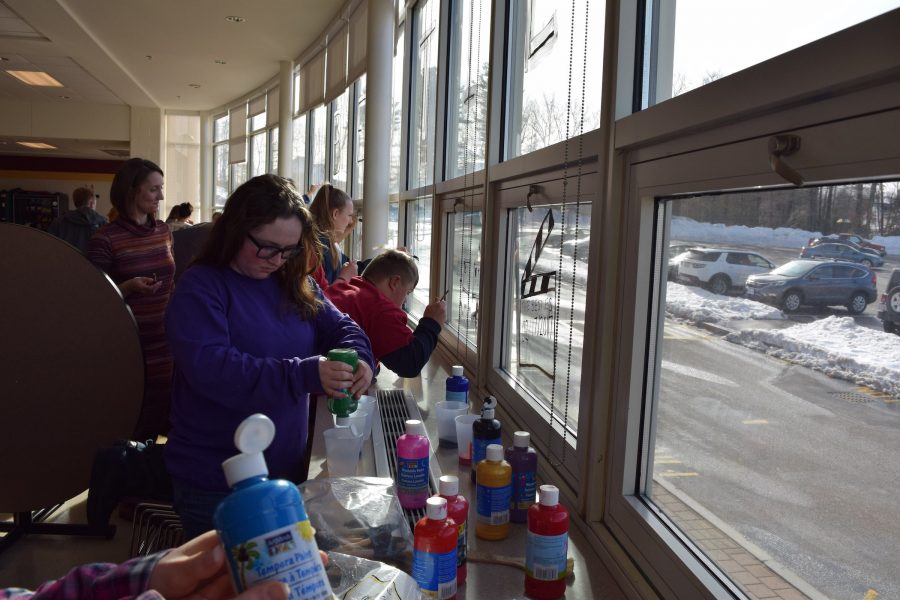Less is more: join clubs for interests, not resumés
Best Buddies club members paint the cafeteria windows during their after school meeting for the annual Friendship Ball on February 17.
February 22, 2017
A club advisor’s and members’ hearts get ripped out whenever the words “I’m doing this because it’ll look good on my college application” are uttered.
For many students, clubs are no longer about having fun and getting involved. They’re about building up that ideal college resume so they don’t get criticized by anxious parents or admissions counselors for not being a “perfect, well-rounded student.”
As a freshman involved in several clubs, such as Steering Committee and Mock Trial, I see some students show up to meetings without the intention of devoting their energy into the club’s purpose. These students typically do not attend the meetings regularly, claiming “they forgot,” and when they do show up, they contribute little to nothing.
The problem is, these students take away from those who genuinely want to be there because, especially in extracurriculars where there are team competitions such as Mock Trial and robotics. When half the team doesn’t show up for practice, the group as a whole can’t fully prepare for what’s to come. Club competitions aren’t something where a person can just wing it and become a professional overnight. It takes time and training, which is offered at the meetings.
I understand that not everyone uses clubs as a resume-filler and that there are students who aren’t sure what they are passionate about. However, the difference between club ghosters and students trying new clubs is that one lets the advisers and club members know that they are trying it out, and if it gets to a point where they’re no longer interested, they let them know that this club may not be the right fit for them.
Board members of clubs need to enforce stricter rules on students who don’t seem to be dedicated to the cause because in sports, if you don’t regularly attend practices and put effort into practicing, you sit out the next game.
In clubs like Mock Trial or DECA where there are time sensitive competitions, if a member misses a good amount of the meetings and does not put effort in preparing, they should sit out just like in sports. Those who are passionate are the ones willing to enjoy the environment, the ones who put in extra hours, and most importantly, the ones ready to hit the ground running when the meeting begins.
Many students at Algonquin feel the pressure to impress an admissions officer at an ivy league or a good college, but most colleges such as Harvard and Northeastern want students who are passionate about their hobbies.
On the Harvard website, Harvard specifies that they look for promising students who are not only spending their time studying and doing extracurriculars, but also envision themselves in five years contributing to those around them. When you focus in on one or two activities that you’re passionate about, it tends to be more beneficial than packing in a ton of extracurriculars you don’t truly care about.
There needs to be a schoolwide rule that establishes if one has over two unexcused absences in a meeting hosted by a formal club like DECA, they should not be eligible to participate. Clubs should be taken seriously like sports. Weekly clubs typically meet four times a month, and missing two meetings is half of that amount.
High school is about discovering what you want to do with your life, but how are students supposed to discover these things when a good majority are too busy stuffing their college application with extracurriculars they aren’t passionate about?
If you want to do a club, pick one that you will actually be interested in, and if it turns out to not be what you expected, let the club advisor know.










